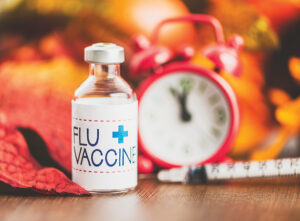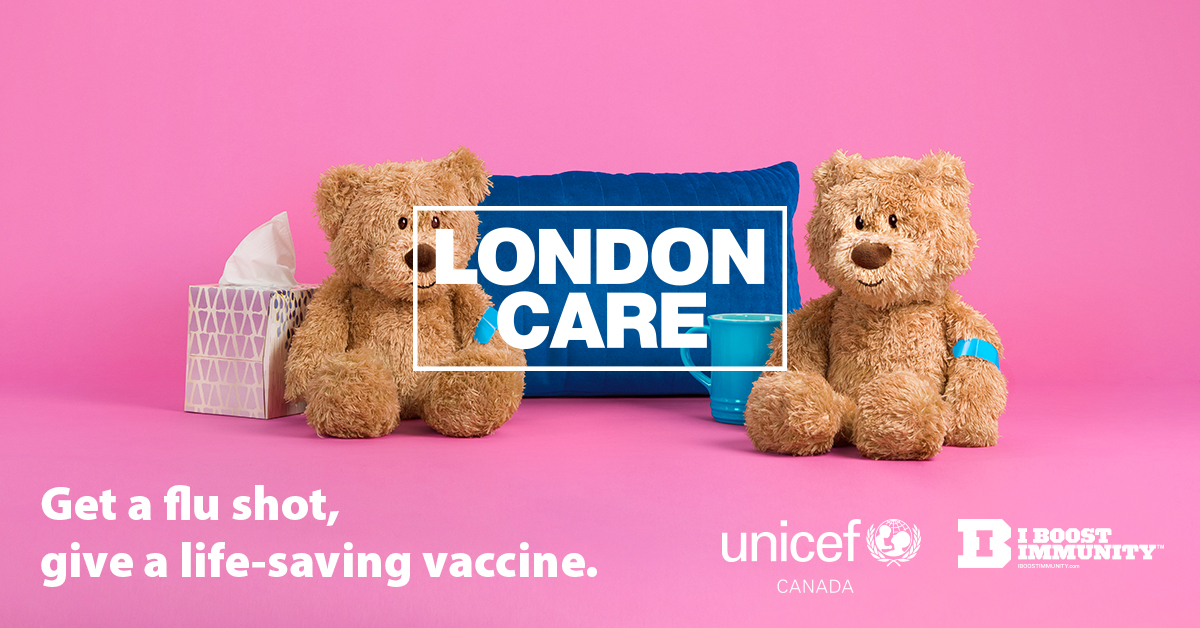Flu season is approaching, and that means many Canadians will find themselves coughing, sneezing, and dealing with other unpleasant symptoms. But are those symptoms due to a cold, influenza (“the flu”), or COVID-19? Here’s a guide to what you need to know about these illnesses.
Colds
Everyone gets a cold occasionally. A cold usually lasts a week or two, and the symptoms generally develop slowly over a couple of days. The symptoms include sneezing, stuffy nose, and sore throat, minor aches, and mild to moderate chest discomfort and cough. Colds don’t usually lead to serious health problems such as pneumonia, but occasionally complications can develop, including infections in the throat, ears, or sinuses. There are a number of steps you can take to reduce your risk of catching a cold:
• Wash your hands often.
• Keep your hands away from your face and avoid touching your eyes, nose, and mouth to prevent transferring the virus into your body.
• As much as possible, stay away from people who appear to be sick.
• Keep your immune system strong by eating a healthy diet and being physically active.
• Do not smoke. Smoking makes it more likely that you will catch a cold, and it makes the cold harder to get rid of.
There is no cure for a cold. Antibiotics will not help, because they fight bacteria but have no effect on viruses, and colds are caused by viruses. What you can do for relief is to treat the symptoms.
Here are some helpful tips:
• Drink plenty of fluids to help soothe a sore throat and thin the mucus in your nose and lungs. Hot fluids such as tea and broth can be especially helpful in relieving a stuffy nose.
• Take hot showers and use a humidifier in your bedroom to relieve a stuffy nose.
• Saline drops may help drain thick or dried mucus.
• A dab of petroleum jelly can ease the discomfort of a red, raw nose.
If you decide to try cough and cold medicines, there are some things you need to know. These medications should not be given to children under six years of age. They won’t work on young children, and they may be harmful. For children age six and over, follow the instructions on the package carefully. Make sure you understand what the proper dose is and how often the dosing can be repeated. Whether these drugs are given to a child or an adult, if more than one is used, make sure they don’t contain any of the same ingredients, because you could risk getting an overdose of some ingredients by combining the recommended doses of several products.
Flu
Unlike colds, flu symptoms develop suddenly. In addition to cough, sore throat, runny or stuffy nose, and muscle or body aches, common flu symptoms include fever, chills, headache, and fatigue. The flu is more serious than a cold, and it can lead to pneumonia and worsening of some existing conditions such as asthma. And even though the flu is caused by a virus, it can lead to bacterial infections. The best way to avoid catching the flu is to get vaccinated—either by getting a flu shot or by getting the nasal spray vaccine. In general, the flu vaccine is recommended for everyone age six months and older; however, there are some people who should not receive the vaccine. Your healthcare provider is in the best position to advise you on the vaccine and whether the shot or the nasal spray would be best for you. The effectiveness of the vaccine varies from year to year, depending on how closely the vaccine matches the particular flu virus that is circulating each year. Even if you do catch the flu after being vaccinated, it is likely that your symptoms will be milder and that your flu won’t last as long.
One thing that is important to understand is that the flu vaccine cannot cause the flu. The same good health habits that will help keep you from catching a cold will also help prevent the flu. People who are at high risk of flu complications should check with their doctor as soon as they think they may be experiencing flu symptoms. People in this category include young children, adults age 65 and older, pregnant women, and those with certain chronic conditions such as heart disease, diabetes, and asthma.
If you do get the flu, antiviral drugs may provide a helpful treatment. Antiviral medications can lessen symptoms and shorten the time you are sick by a day or two. They can also help prevent serious complications.
To register to be notified via email when flu shots are available at your local store, click here.
COVID-19
COVID-19 is yet again adding another dimension to flu season. Symptoms can vary from person to person, and some people who are infected with the virus experience no symptoms at all. When symptoms do occur, they may include any of the following:
• Abdominal pain
• Chills
• Cough
• Diarrhea
• Fatigue or weakness
• Feeling feverish
• Feeling very unwell
• Headache
• Loss of the sense of smell or taste
• Muscle or body aches
• Shortness of breath or difficulty breathing
• Temperature of 38°C (100.4°F) or above
• Vomiting
Symptoms usually appear 5-6 days after exposure to the virus but it may take up to 14 days, or the virus can also be spread by people who have no symptoms. Getting 2 doses of COVID-19 vaccine is the best way to reduce your chances of becoming infected.
The most common ways the virus spreads are through:
• Inhaling the virus in respiratory droplets spread by a cough or sneeze
• Touching something that the droplets have landed on and then touching your eyes, nose, or mouth before washing your hands
• Personal contact, such as by hugging someone or shaking hands
You can reduce your chances of catching the virus by taking some basic precautions:
• Avoid crowded places, especially indoor areas with poor ventilation
• Avoid non-essential trips out of your home
• Do not gather in groups
• Stay at least 2 metres away from other people
• Wash your hands often with soap and water for at least 20 seconds. If soap and water are not available, use an alcohol-based hand sanitizer
• Wear a mask or face covering when out in public
• Get vaccinated
If you become ill and think you may have COVID-19, stay home from school or work and isolate yourself to avoid spreading the virus to others. If you live with other people, stay at least 2 metres apart at all times. Call your healthcare provider or 8-1-1 for assessment and possible referral to COVID-19 testing.
To learn more about COVID-19 vaccinations, click here.





